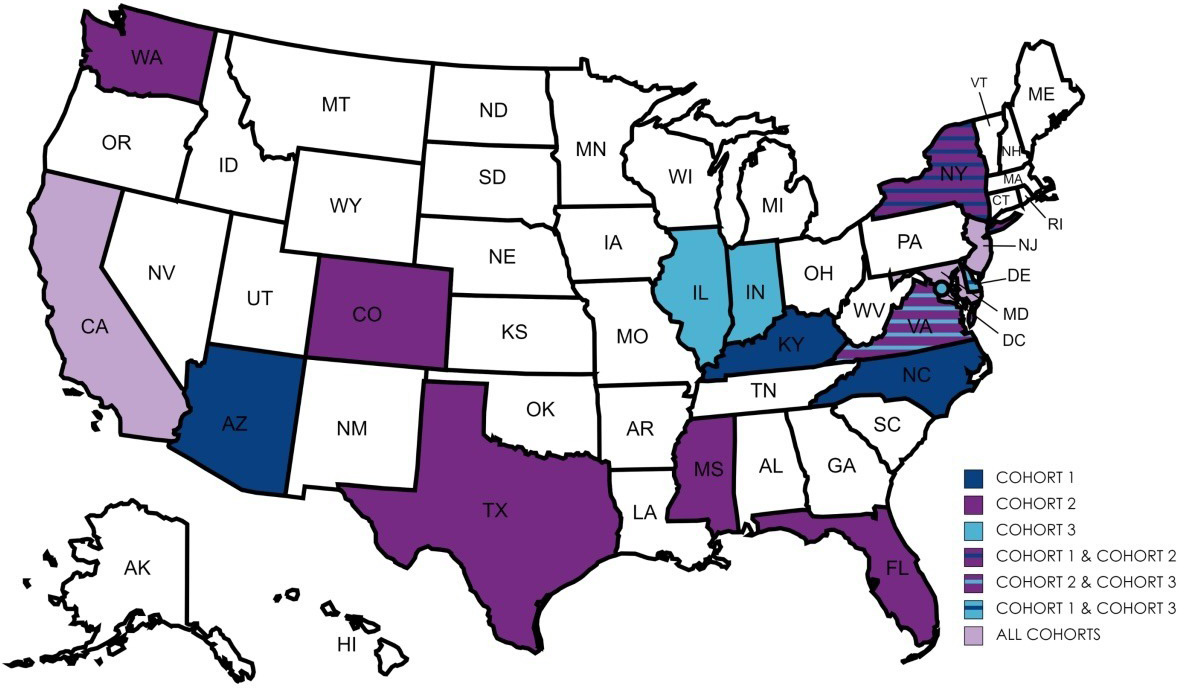Trauma-Informed ACEs Screening and Intervention Evaluation
The Trauma-Informed ACEs Screening and Intervention Evaluation (TASIE) Project ECHO utilizes a toxic stress framework to integrate ACEs (Adverse Childhood Experiences) screening, and trauma-informed strengths-based interventions that recognizes the impact of ACEs on health and effectively treats toxic stress in children. The TASIE Project was funded by the Health Resources & Services Administration (HRSA) and was conducted through partnership with the New Jersey Chapter, American Academy of Pediatrics (NJAAP), Center for Youth Wellness (CYW) – a program of Safe & Sound, & Kaiser’s Center for Community Health & Evaluation (CCHE).
Over the three-year project period, CYW and NJAAP implemented CYW’s Pilot Site Program for three cohorts of pediatric practices, each over a period of nine months, utilizing the Project ECHO® Quality Improvement (QI) framework. The Project ECHO® QI framework was chosen to more effectively engage pediatric primary care practices throughout the country, and ensure that practices will hear and learn from the on-the-ground experiences of their peers and experts using the “All Teach, All Learn” method of learning. The TASIE Project was evaluated to yield a scalable model for integrating ACEs screening and trauma-informed strengths-based patient follow up at practices across the country.
The TASIE Project was led by two Co-Principal Investigators, Karissa Luckett, RN, BSN, MSW and Steven Kairys, MD, MPH, FAAP. Faculty on the project also included:

After training a total of 46 practices and 68 practitioners on screening for ACEs in the Pediatric Primary Care setting, the TASIE Project was completed in August, 2024. Many thanks to the authors of this report, the team at the Center for Community Health and Education, who worked with us during the entire 3 year project to collect, collate and analyze the data submitted by the practices.
In 2023, the first 2 years of results from the TASIE Project were compiled and sent to the House Appropriations Committee.
Reports are available to download in PDF format.
According to the National Survey of Children’s Health, 34.8 million children across the United States are impacted by ACEs. ACEs are exposures in childhood to abuse, neglect, parental incarceration, divorce, or domestic violence that have been shown to affect virtually every domain in which a child functions. ACEs are associated with health impairment across the life course and are strongly related to the prevalence of numerous health problems (Felitti, et. al, 1998).
ACEs can have lasting, negative effects on health, well-being, as well as life opportunities such as education and job potential. These experiences can increase the risks of injury, sexually transmitted infections, maternal and child health problems (including teen pregnancy, pregnancy complications, and fetal death), involvement in sex trafficking, and a wide range of chronic diseases and leading causes of death such as cancer, diabetes, heart disease, and suicide.
ACEs and associated social determinants of health, such as living in under-resourced or racially segregated neighborhoods, frequently moving, and experiencing food insecurity, can cause toxic stress (extended or prolonged stress). Toxic stress from ACEs can negatively affect children’s brain development, immune systems, and stress-response systems. These changes can affect children’s attention, decision-making, and learning. (CDC)